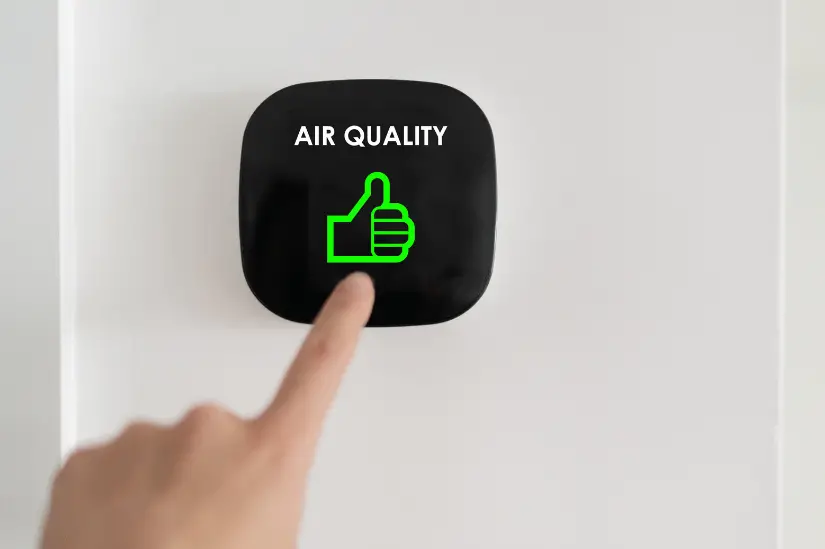
Indoor air quality (IAQ) is crucial for our health and well-being. Poor IAQ can lead to various health problems such as allergies, asthma, and respiratory infections. The air we breathe inside our homes can be even more polluted than the air outside. Understanding the factors that contribute to poor IAQ and how air purifiers can help is essential for maintaining a healthy living environment. In this article, we will explore the factors that contribute to poor IAQ, what factors contribute to good air quality, how often air purifiers should clean the air, and how air purifiers can improve IAQ.
Factors That Contribute to Poor Indoor Air Quality
- Poor ventilation: When there is insufficient ventilation, pollutants such as smoke, cooking fumes, and cleaning chemicals can accumulate in the air, leading to poor IAQ.
- Indoor smoking: Cigarette smoke is a major contributor to poor IAQ, causing respiratory problems and cancer.
- Chemicals and volatile organic compounds (VOCs): Household products such as cleaning agents, pesticides, and paints contain chemicals and VOCs that can be harmful when inhaled.
- Humidity: High humidity levels can lead to mold and mildew growth, which can cause respiratory problems and allergies.
- Pet dander and hair: Pets shed hair and dander, which can accumulate in the air and cause allergies and respiratory problems.
- Outdoor pollutants: Outdoor pollutants such as pollen, dust, and smoke can enter the home and decrease IAQ.
What Factors Contribute to Good Air Quality
- Effective ventilation: Good ventilation is essential for maintaining good IAQ. Proper ventilation allows for the exchange of fresh air and the removal of pollutants.
- Clean air filters: Regular cleaning and replacement of air filters in HVAC systems and air purifiers can help maintain good IAQ by removing pollutants from the air.
- Low humidity: Humidity levels should be kept between 30-50% to prevent mold and mildew growth.
- Natural air purifiers: Plants such as spider plants, aloe vera, and snake plants can help improve IAQ by removing toxins from the air.
- Avoiding smoking indoors: Smoking indoors should be avoided to prevent the accumulation of harmful chemicals in the air.
How Often Should an Air Purifier Clean the Air
The frequency of air purifier cleaning depends on the type of air purifier and the level of pollutants in the air. HEPA filters should be changed every 6-12 months, while activated carbon filters should be changed every 3-6 months. Pre-filters should be cleaned every 2-3 months or replaced when visibly dirty. It is essential to follow the manufacturer’s instructions for specific air purifiers.
How Do Air Purifiers Improve Air Quality
Air purifiers can improve IAQ by removing pollutants such as smoke, dust, pollen, and pet dander from the air. They work by using filters to trap particles as the air is pulled through the unit. HEPA filters remove 99.97% of particles as small as 0.3 microns, while activated carbon filters remove odors and VOCs. Some air purifiers also use UV-C light to kill bacteria and viruses.
Air purifiers can also help alleviate symptoms of allergies and asthma by removing irritants from the air. They can also improve sleep quality by reducing snoring caused by allergies and asthma symptoms.
Conclusion
Air purifiers are a valuable tool for improving IAQ by removing pollutants such as smoke, dust, and allergens from the air. Regular cleaning and replacement of air filters are essential to maintain the effectiveness of air purifiers. By following the factors that contribute to good air quality, we can ensure that our homes have clean and healthy air to breathe.
FAQs
- Can air purifiers remove all pollutants from the air? Air purifiers can remove many pollutants from the air, but not all of them. They are most effective against particles such as smoke, dust, and allergens, but may not be as effective against gases and chemicals.
- Can air purifiers cause any health problems? Air purifiers themselves do not cause health problems, but it is essential to follow the manufacturer’s instructions for cleaning and replacement of filters. Neglecting maintenance can lead to the growth of mold and bacteria in the unit, which can cause health problems.
- Can air purifiers help with asthma and allergies? Yes, air purifiers can help alleviate symptoms of asthma and allergies by removing irritants from the air.
- Do all air purifiers have the same effectiveness? No, the effectiveness of air purifiers depends on the type of filter used and the level of pollutants in the air. HEPA filters are more effective than other types of filters for removing particles as small as 0.3 microns.
- Can air purifiers help with COVID-19? While air purifiers can help remove some viruses from the air, they are not a substitute for other preventative measures such as wearing masks and social distancing.


